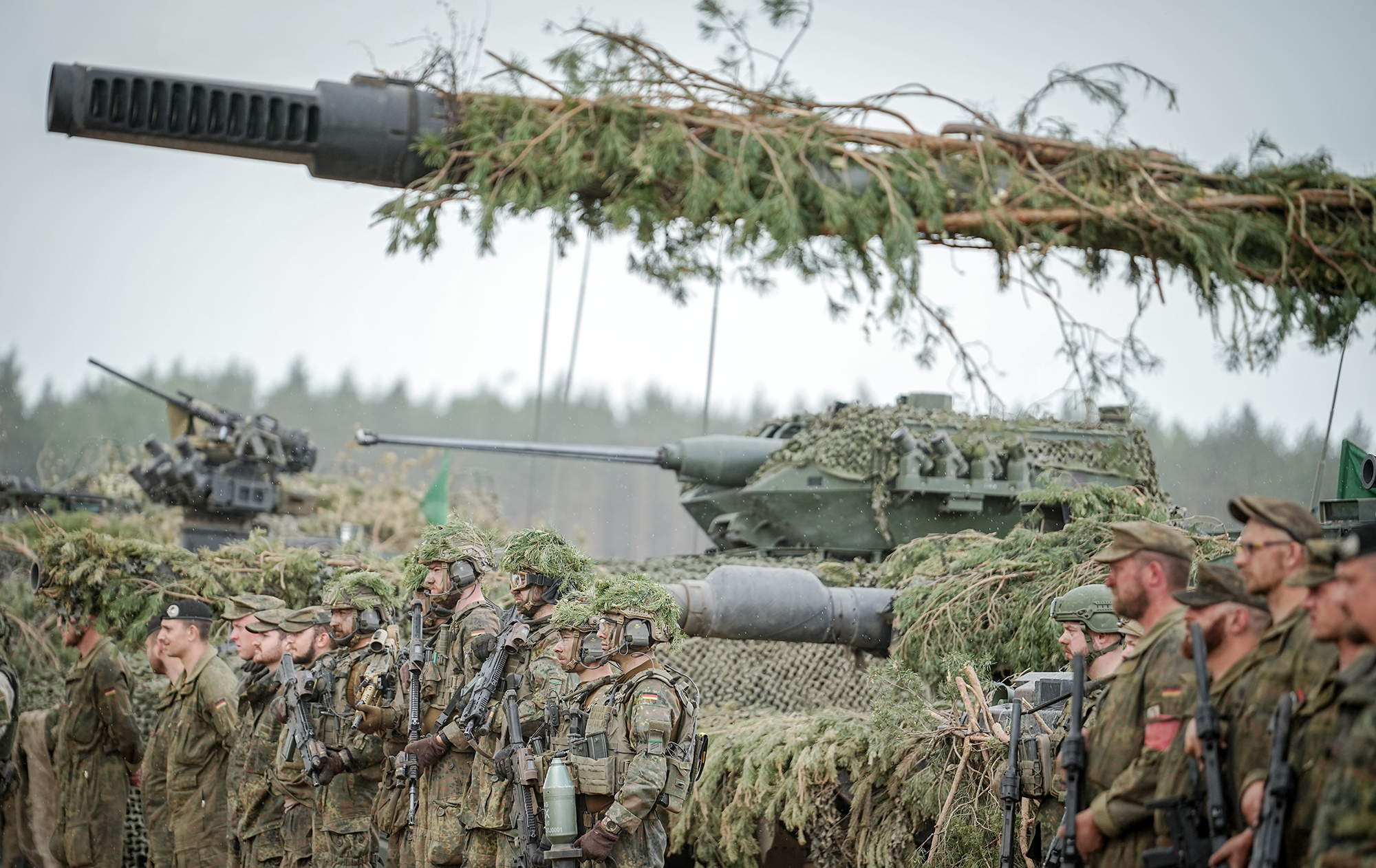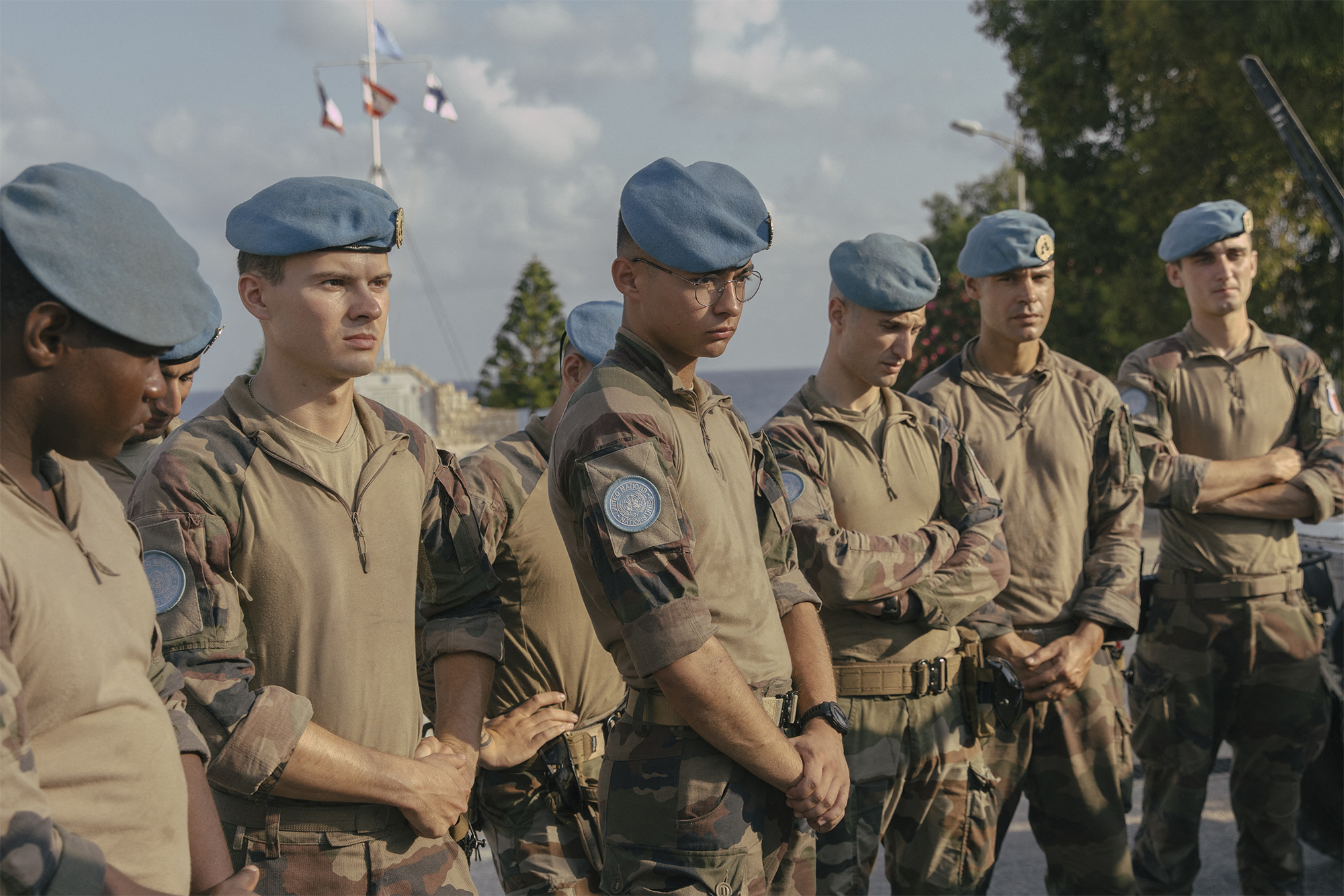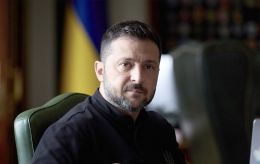Macron seeks the brave: Will Europe send troops to Ukraine against Russia's will
 Volodymyr Zelenskyy and Emmanuel Macron (photo: Getty Images)
Volodymyr Zelenskyy and Emmanuel Macron (photo: Getty Images)
Emmanuel Macron is convening a summit in Paris for countries that may send their troops to Ukraine. Whether his long-standing initiative will take concrete shape and how Europe can support Ukraine right now is covered in the RBC-Ukraine's article below.
Contents
Today, March 27, a summit of the "Coalition of the Willing" regarding support for Ukraine will occur in Paris. Representatives from more than 20 countries have been invited, including European Union nations and the United Kingdom, Canada, Norway, and Türkiye. Ukrainian President Volodymyr Zelenskyy will also attend.
Will there be specifics on foreign troops in Ukraine
The purpose of the meeting in Paris is to establish Europe as an influential and, most importantly, independent player on the international stage. Europe received a public "slap" mid-February at the Munich Security Conference. There, American participants, led by Vice President JD Vance, publicly stated that European leaders would not have a seat at the negotiating table regarding the end of Russia's war with Ukraine. They made it clear that Europe's security is primarily its responsibility, meaning that relying unconditionally on the United States, as before, is no longer an option.
These events have at least partially awakened EU leaders. Decisions on increasing defense spending are now being made at an unprecedented speed for the EU. At the level of individual states, France and the United Kingdom are attempting to rally a "coalition of the willing" for the potential deployment of troops to Ukraine. This is the main topic of the summit in Paris, though not the only one.
Previously, French President Emmanuel Macron stated that the "Coalition of the Willing" summit aims to finalize preparations for "short-term" military assistance to Ukraine, develop a "reliable model" for the Ukrainian army to prevent future Russian invasions, and determine security guarantees, including the possible deployment of foreign troops on Ukrainian territory.
A key aspect of this plan is the initiative concerning a foreign military contingent, which has already undergone several transformations. At earlier stages, according to RBC-Ukraine sources, discussions in closed circles even considered a UN peacekeeping mission directly on the front lines, with a force of up to 100,000 soldiers.
However, this scenario was widely regarded as completely unrealistic. The focus shifted to more feasible concepts—not UN peacekeepers, but multinational forces from countries willing to send troops to Ukraine. These forces would not be stationed on the front lines but rather in rear areas. Their role would be primarily supportive, possibly involving instructors, technical personnel, and other non-combat specialists. According to Macron himself, this contingent would be deployed not on the front lines but in a "peaceful zone," fulfilling a role in "supporting security guarantees."
The details of such a mission have been discussed in Paris during several meetings of military chiefs. However, there is still a lack of clarity, as several participating countries have yet to make a final decision.
"Our task is to come out with an understanding of who we have and who is ready to implement security guarantees specifically through the deployment of a contingent," said Volodymyr Zelenskyy at a press briefing on March 25. "I believe that we may already have some preliminary results, at least a theoretical understanding of which countries are willing to participate."
On the eve of the summit, Zelenskyy met with French President Emmanuel Macron to discuss a joint strategy for today's meeting; several factors add unpredictability to the situation.
Factors of uncertainty
Even in Paris and London — the two main drivers of sending a contingent to Ukraine — there are reservations and somewhat different views on the mission. Not to mention other potential participants. According to sources cited by Reuters in European diplomatic circles, some countries are concerned about the costs of the future mission, a shortage of personnel and equipment, and the prospect of finding themselves in a state of war with Russia.
According to The Telegraph, British Prime Minister Keir Starmer was premature in speaking about sending troops to Ukraine. A source in the UK Ministry of Defence told the agency that negotiations are at an "early stage" and are rather political. Moreover, there are questions about the actual military potential of the United Kingdom.
Uncertainty also exists in France, which has informally taken the lead in the contingent initiative. On one hand, President Emmanuel Macron has taken a firm stance. “Our soldiers, when they are engaged and deployed, must respond to the decisions of the commander-in-chief, and if they find themselves in a conflict situation, they must respond accordingly,” Macron said on March 26 after a meeting with Volodymyr Zelenskyy.
On the other hand, opposition in parliament, particularly the National Rally party, is against sending troops to Ukraine. Additionally, the idea of a contingent is met with mixed reactions in French society, as explained to RBC-Ukraine by Oksana Mitrofanova, a lecturer and researcher at Jean Moulin Lyon 3 University in France.
“Public opinion, of course, largely supports Ukraine, but when it comes to the hypothetical possibility of sending French troops, it also raises the possibility, first of all, of French soldiers dying, and second, of confrontation with nuclear-armed Russia,” Mitrofanova said.
According to the expert, the French government is considering several completely different support models for Ukraine. Which one will be implemented may depend on the outcome of negotiations currently taking place between the United States, Russia, and Ukraine.

German soldiers at an exercise in Lithuania (photo: Getty Images)
French plans to send a European contingent remain the main option, but other possibilities, including a UN peacekeeping mission, are also being discussed. Emmanuel Macron raised this issue during the European Council summit with UN Secretary-General António Guterres on March 19.
Ultimately, everything depends on the results of negotiations between Ukraine, Russia, and the United States. “Everyone is waiting to see what kind of truce will be reached, where and how. To understand what forces are needed and where exactly there may be a need for troop withdrawals, monitoring, or other actions,” said Hanna Shelest, the Director of Security Programmes at the Foreign Policy Council "Ukrainian Prism", in a comment to RBC-Ukraine.
According to her, until there is an answer to this question, potential participants in the “coalition of the willing” are not ready to make commitments.
Another factor of uncertainty is the position of the United States. Support from Washington is crucial for deploying multinational forces, at least from a logistical standpoint.
Although President Zelenskyy has stated that there is an “alliance” between Europe and the United States regarding security guarantees, which could include sending a contingent, specifics remain scarce.
“We don’t yet know the role of the United States or what it could be, but there are options for this role. Everyone would like it to be a backstop of America (a pillar of support from America),” Zelenskyy said on March 25.
Another unknown is the duration of a possible truce before a final peace agreement is signed, as a full-fledged mission cannot be deployed within just a few weeks. Ultimately, this also determines the mission’s objectives and format.
For example, due to its limitations, a European contingent from NATO member states could only perform support functions, which has been clearly discussed.
“They (European troops) could either help us with security at sea or help close the airspace, at least over certain regions. They could also be stationed on the western border so that Ukraine could free up some forces that could then be redeployed to the north or east,” Shelest told the agency.
Moreover, if the idea of sending a contingent gains more concrete shape, one should expect even fiercer opposition from Russia, which has repeatedly stated that it categorically opposes any “NATO troops” on Ukrainian territory.
Why UN peacekeeping mission discussed again
In this context, Macron’s return to the idea of UN peacekeepers may serve as a kind of “Plan B” if a full-fledged peace cannot be achieved immediately and only a truce is in place. The mission could involve European countries, Türkiye, India, and other nations in this scenario. Furthermore, this would ensure that the mission has a sufficient scale.
“They (third countries – ed.) will never join a European or multinational mission, but they are one hundred percent ready to participate in a UN mission. At the very least, the Indians—we were asked this question last week in India (during a visit – ed..), literally at every meeting we attended,” Shelest emphasized.

French peacekeepers in Lebanon (photo: Getty Images)
However, a UN peacekeeping mission requires approval from the Security Council, where Russia has the right to veto and will undoubtedly try to push through conditions favorable to itself. At the same time, according to Shelest, there is a chance of involving China. RBC-Ukraine has previously reported that China is playing its own game, not always siding with Russia.
“Some sources say that China is even ready to send its own peacekeepers — they are among the top ten largest contributors. But then there are Chinese statements saying ‘No, no, we are not considering this yet.’ I think the truth lies somewhere in the middle,” Shelest told the agency.
However, if the final version of the UN mission project does not appeal to the aggressor country, it will always be able to block it unilaterally with its veto.
Supporting Ukraine here and now
Negotiations on a truce between Russia and Ukraine are still in the early stages. Thus, the Paris summit may become another “synchronization of watches” without any breakthroughs.
At the same time, in all meetings of this kind, Ukraine’s priority remains bilateral dialogue and obtaining military aid from individual countries. Of course, there are long-term assistance programs, such as within the framework of the collective Ukraine Compact program or bilateral security cooperation agreements with Ukraine.
After the sudden suspension and subsequent resumption of US aid, support from Europe remains particularly relevant. As before, the issue of air defense remains critical. President Zelenskyy held negotiations on this matter with European partners in early March and announced good news.
Another area of focus is combat aircraft. During the aforementioned suspension of US military aid, support for radar jamming systems for F-16s was also temporarily halted. Additionally, the issue of increasing the number of aircraft for Ukraine remains unresolved.
“If we consider how France can provide real assistance, it would be to search for Mirage jets that are used in other countries, meaning increasing their supply and training Ukrainian pilots,” Mitrofanova told RBC-Ukraine. And after negotiations with Macron ahead of the summit, Zelenskyy announced that Ukraine would indeed receive more French aircraft.
At the same time, delays are possible regarding certain categories of weapons due to the need to reassess whether Ukraine needs them. “If a decision is suddenly made not to strike Russian territory or something similar, then the question arises: should we be given Storm Shadow missiles right now, for example? Or would it be better to spend that money on something else?” explained Hanna Shelest.
In this context, a truce carries additional risks for Kyiv. Countries that provide military support to Ukraine will not withdraw it but will reassess the composition of their assistance. This, in turn, could lead to shifts in delivery timelines. It is crucial for Ukraine to discuss all these messages with its partners today to avoid “gaps” in the most critical areas of support.
Sources: The Telegraph, AFP, Bloomberg, Reuters, and comments from Hanna Shelest and Oksana Mitrofanova.

